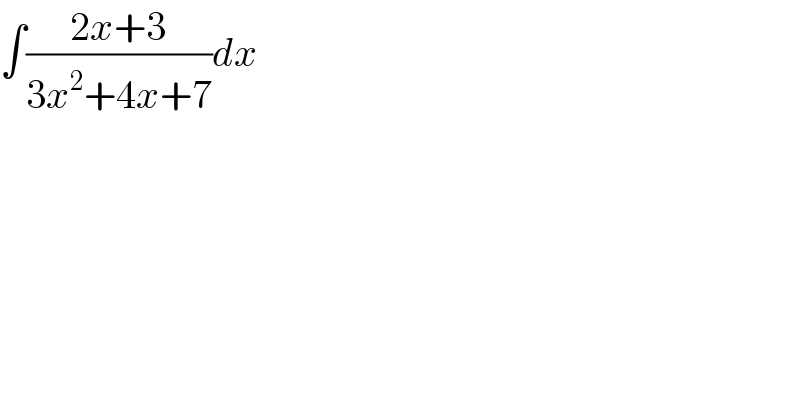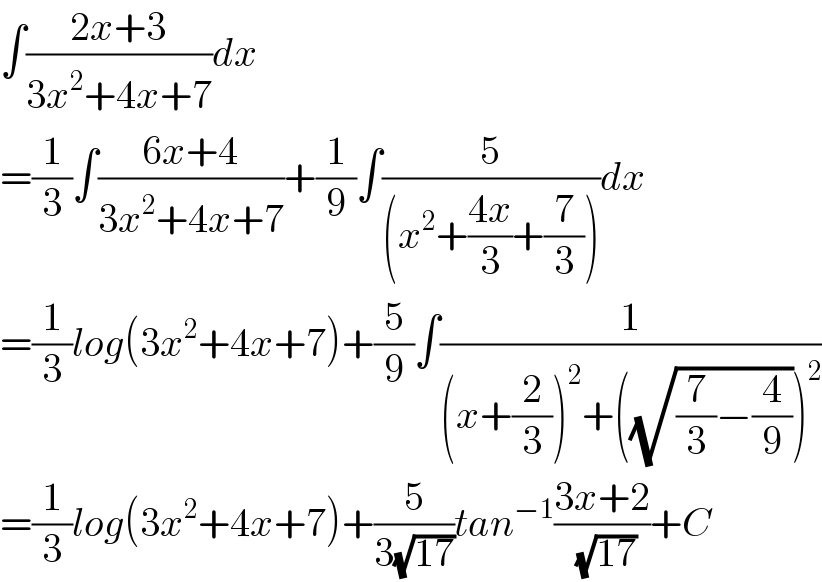
Question Number 123313 by aurpeyz last updated on 24/Nov/20

$$\int\frac{\mathrm{2}{x}+\mathrm{3}}{\mathrm{3}{x}^{\mathrm{2}} +\mathrm{4}{x}+\mathrm{7}}{dx} \\ $$
Answered by Dwaipayan Shikari last updated on 24/Nov/20

$$\int\frac{\mathrm{2}{x}+\mathrm{3}}{\mathrm{3}{x}^{\mathrm{2}} +\mathrm{4}{x}+\mathrm{7}}{dx} \\ $$$$=\frac{\mathrm{1}}{\mathrm{3}}\int\frac{\mathrm{6}{x}+\mathrm{4}}{\mathrm{3}{x}^{\mathrm{2}} +\mathrm{4}{x}+\mathrm{7}}+\frac{\mathrm{1}}{\mathrm{9}}\int\frac{\mathrm{5}}{\left({x}^{\mathrm{2}} +\frac{\mathrm{4}{x}}{\mathrm{3}}+\frac{\mathrm{7}}{\mathrm{3}}\right)}{dx} \\ $$$$=\frac{\mathrm{1}}{\mathrm{3}}{log}\left(\mathrm{3}{x}^{\mathrm{2}} +\mathrm{4}{x}+\mathrm{7}\right)+\frac{\mathrm{5}}{\mathrm{9}}\int\frac{\mathrm{1}}{\left({x}+\frac{\mathrm{2}}{\mathrm{3}}\right)^{\mathrm{2}} +\left(\sqrt{\frac{\mathrm{7}}{\mathrm{3}}−\frac{\mathrm{4}}{\mathrm{9}}}\right)^{\mathrm{2}} } \\ $$$$=\frac{\mathrm{1}}{\mathrm{3}}{log}\left(\mathrm{3}{x}^{\mathrm{2}} +\mathrm{4}{x}+\mathrm{7}\right)+\frac{\mathrm{5}}{\mathrm{3}\sqrt{\mathrm{17}}}{tan}^{−\mathrm{1}} \frac{\mathrm{3}{x}+\mathrm{2}}{\:\sqrt{\mathrm{17}}}+{C} \\ $$
Commented by aurpeyz last updated on 25/Nov/20

$${thank}\:{you} \\ $$
